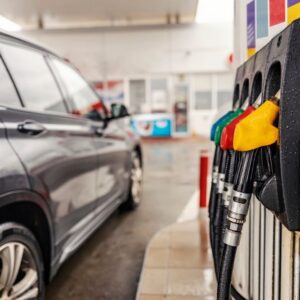
If you’re in recovery from an alcohol use disorder, you may be worried about how you’ll manage social anxiety without drinking. Alcohol is often used as a way to ease nerves in social situations, which is why learning how to manage anxiety and socialize without drinking is an essential part of the recovery process.
Understanding Social Anxiety Disorder
Most people feel a little anxious in social situations from time to time. But for some, anxiety is more than just an occasional feeling. When anxiety becomes a chronic condition that causes significant distress and interferes with everyday activities, it’s known as social anxiety disorder (SAD) or social phobia. According to the Anxiety and Depression Association of America, around 15 million adults in the United States live with SAD.
SAD can make everyday activities like going to work, socializing with friends, or even shopping at the grocery store feels impossible. People with SAD often worry for days or weeks leading up to an event. They may even avoid situations altogether out of fear.
The Relationship Between Social Anxiety and Alcohol Abuse
Because social anxiety disorder often goes undiagnosed due to shame, stigma, or a lack of awareness of the seriousness of the condition, people may turn to alcohol to self-medicate their symptoms. Unfortunately, drinking is only a temporary solution that can actually make SAD worse in the long run.
Alcohol is a depressant, which means it slows down the nervous system. This can lead to feeling more anxious and agitated. Alcohol can also make it difficult to think clearly and make good decisions. When you’re under the influence of alcohol, you’re more likely to do something you’ll regret or say something you don’t mean. This can further damage your relationships with friends or family and make social situations even more daunting.
How to Manage Social Anxiety Without Drinking
There are many ways to manage social anxiety without turning to alcohol, but it may take some trial and error to find an approach that works best for your needs. Here are a few tips:
- Talk to someone you trust about your anxiety. This can help you understand your triggers and come up with a plan to deal with them. Your counselor, 12-Step sponsor, and friends or family that you trust can also help you better understand how to cope with your anxiety effectively.
- Challenge your negative thoughts. When you’re feeling anxious, it’s easy to jump to conclusions that aren’t based in reality. Remind yourself that just because you’re feeling anxious doesn’t mean something bad is going to happen.
- Focus on the present. Anxiety can often be caused by dwelling on past failures or worrying about the future. Try to stay in the present and focus on what you’re doing at that moment.
- Exercise. Exercise benefits your mental health by reducing stress and providing a constructive outlet for your emotions. It can also help you sleep better, which can further reduce anxiety.
- Get enough sleep. Anxiety can often be caused by sleep deprivation. Getting enough rest can help reduce anxiety and improve your overall health.
- Consider medication. If your SAD is not manageable with lifestyle changes alone, you may benefit from prescription medication to manage your symptoms.
You Don’t Have to Drink to Have a Good Time
Although you don’t need alcohol to manage your social anxiety, the thought of being the only person at an event who isn’t drinking may cause you some concern. However, it is important to remember that you do not have to drink just because everyone else is. If you are feeling pressure from others to drink, here are a few tips to help you turn down alcohol in social settings:
- Focus on your sobriety. It can be easy to get caught up in what other people are doing, but it’s important to stay focused on your own sobriety. Remind yourself why you’re not drinking and how good it feels to be sober.
- Have an excuse ready. If you are worried about what others will think if you do not drink, have an excuse ready ahead of time. You can say that you are taking medication that doesn’t mix well with alcohol or that you’re trying to cut back for health reasons.
- Offer alternatives. If you’re worried about being left out, offer to do something else instead of drinking. Suggest going for a walk, playing a game, or grabbing coffee.
- Expand your sober support network. If you choose to socialize with people who are also in recovery, you’ll have a built-in support system to help you stay sober.
When all else fails, remember that you can always leave. If you find yourself in a situation where you’re feeling uncomfortable or tempted to drink, this may be the best option. Your sobriety means more than any social event.
Waypoint Recovery Center Believes in You
At Waypoint Recovery Center, we provide a full continuum of care for men and women with alcohol use disorders and co-occurring mental health conditions such as SAD. Treatment at our South Carolina residential addiction recovery center takes a holistic approach that focuses on building the skills that are needed to effectively manage your emotions without the use of addictive substances. Contact us today to learn more about how our services can help you break free from the burden of addiction.





